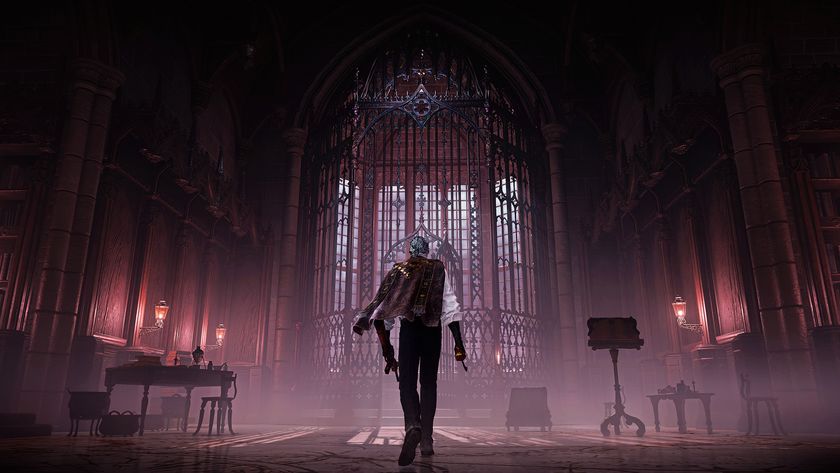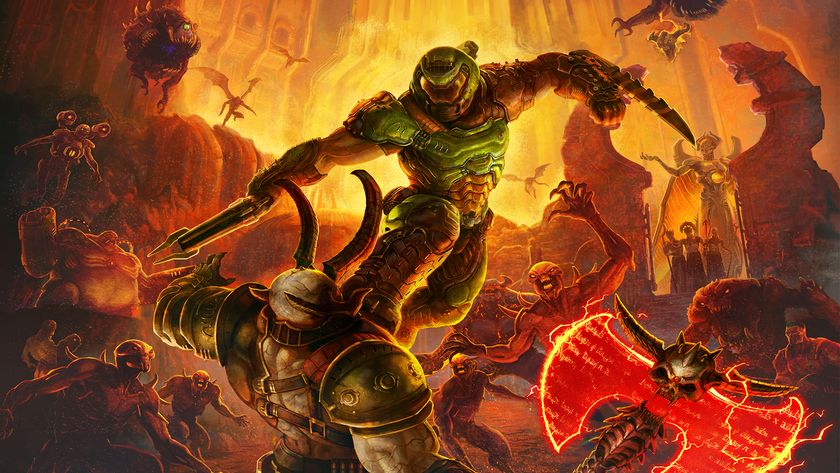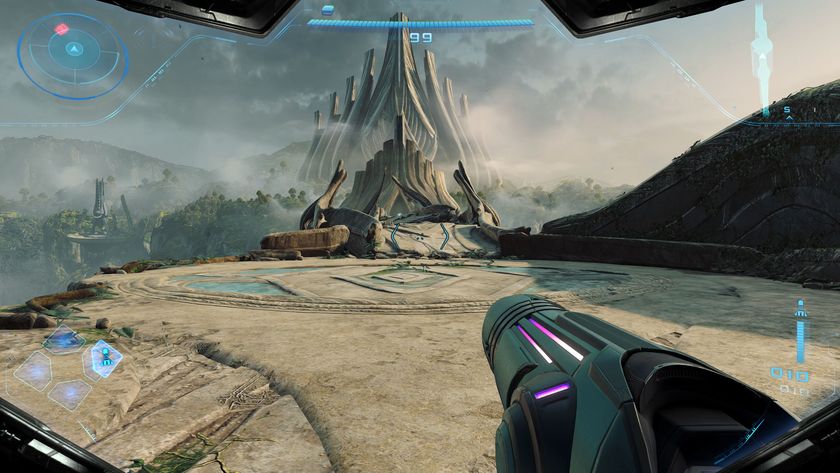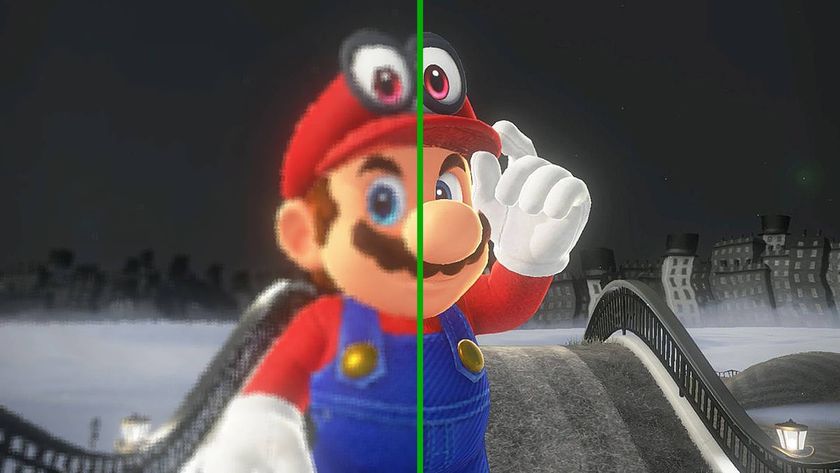Deus Ex: Human Revolution hands-on preview
Worry no more - this is no dumb or simple shooter
We really dig the whole vibe of the world – it reminds us of Blade Runner and the old SNES version of Shadowrun, which is indeed a good thing. Sure, all the lights seem to be made out of glow sticks, which is a bit goofy and rave-like, but the grimy back alleys combined with bright, luminescent billboards makes for an inviting neo-noir world that’s fun to explore. It’s also a good thing, then, that the game rewards exploration: not only do you get pure XP for discovering hidden areas, but you can even come across a sweet piece of equipment like a shotgun or something exotic you can’t find anywhere else. Loot is definitely a big part of the game, with drawers and lockers to rifle through, bodies to ransack, and of course, computers to hack.

Above: Just begging to be explored and looted
Human Revolution’s hacking minigame is not just some side skill you can dabble in if you feel like it: critical mission objectives require hacking, and there are tons of other hackable objects in the world (hell, one early office room literally has a computer at every desk, all hackable – we’re talking like twelve computers in just one room). It’s hard to tell how complex or interesting the hacking will get, since it stays very simple for the first few hours of the game. It’s also difficult to describe – the tutorial is confusing and we didn’t really understand how to hack until we started doing it. We’ll keep it simple to give the best idea: you go into a virtual grid of nodes connected by pathways, and you simply choose which nodes to “take over,” which opens up the next nodes. It’s partially a game of chance: taking over a node has the possibility of alerting the security AI (you know the percent chance before taking a node), but once the AI is active, it’s a race to get to the end before the AI gets to your “home base.” The early hacking requires no strategy, allowing you to just take the shortest path, but later on the grids get more complex and you’ll earn consumable items that allow you to perform one-time special actions. It seems well-designed and gets extremely intense when you’re trying to race the AI.
The combat, from what we played, ranges from shockingly easy to “boom, you’re dead” sometimes within a single fight. What often makes the shootouts easy is that your reticle displays on screen even when you’re in cover, which means you can line up headshots while totally safe and pop out to down enemies with a single pull of the trigger. However, this only remains true if the enemies are cowards and try to hold back. Sometimes they’ll sneak around and flank you or just bum-rush you, and these scenarios are extremely dangerous because you’ll die in about one second if someone catches you in the open at close range. Adding to the strange feel of the combat is the limited ammo – if you try to play this like it’s a standard shooter, you’ll run out of bullets real quick. Still, “strange” is not a bad word in our eyes, and we rather enjoyed the combat throughout our hands-on since it felt different from just about everything else around these days, even if it was in subtle ways.

Above: There are a lot of guns to play with - at one point we had an assault rifle, a shotgun, a 10mm pistol, a machine pistol and a crossbow in our inventory
A few missions into the game a potentially worrisome drawback to Human Revolution’s open-ended character development came to light. In order to use the basic augments you have to spend Praxis Points on them, which means that unless you purchase the cloaking augment, that core aspect of the game won’t be available to you. At first this seemed fine, because when we did our second try at a character build and totally ignored stealth, we had no problems. But then we reached a mission where we had to infiltrate a police station and steal a vital piece of evidence. The station was crawling with cops, alarms, and security cameras, and we found it nearly impossible to make it through without invisibility. We died many, many times.
Dying a lot, however, isn’t necessarily a bad thing, and it’s meant to be a part of Human Revolution. The game offers multiple pathways to success, so part of the game is spent failing and trying different things. Of course, in our situation in the police station, we didn’t have other options that we could see because we had spent our points in skills that didn’t really help in that scenario. The argument could be made that we were dumb: we should have chosen to purchase invisibility, because hello, obviously that’s important. It’s unfortunate, though, that when we tried to maximize one skill tree, we were essentially punished instead of rewarded for specialization. But again, feel free to tell us we suxxorz at Deus Ex (because we probably do).
Sign up to the 12DOVE Newsletter
Weekly digests, tales from the communities you love, and more

Above: The look has a nice combination of "clean" brightness and dirty grime (note the litter in the street)
We also got to see a much later mission that involved infiltrating FEMA because hey, we all know those guys are jerks. Anyway, it showed how heavily guarded things got further into the game, where multiple augments came into play for survival: stealth for invisibility, silent footsteps for creeping just past guards, augmented jumping to surmount high obstacles, the Icarus augment which allows drifting safely to the ground from great heights, and a really cool piece of tech that basically turns your bullets into homing missiles. We also saw a hugely intimidating robot walking-tank thingy that needed EMP grenades and a rocket launcher to take down, so the game isn’t just about quiet sneaking and small firefights – it gets big and explodey when it needs to.
Deus Ex fans aren’t going to be easy to please, but Human Revolution looks like it’s taking the right steps to make a proper attempt. It’s very much a hybrid shooter/RPG/adventure/stealth game, which means it could turn traditional shooter fans off if they don’t know what they’re getting into. The healthy dose of dialogue and exploration feels like a nice injection of old-fashioned gaming into the modern action model, so we’re optimistic that it could turn out quite well. It’s just going to have to kick our asses quite a bit.
May 11, 2011












